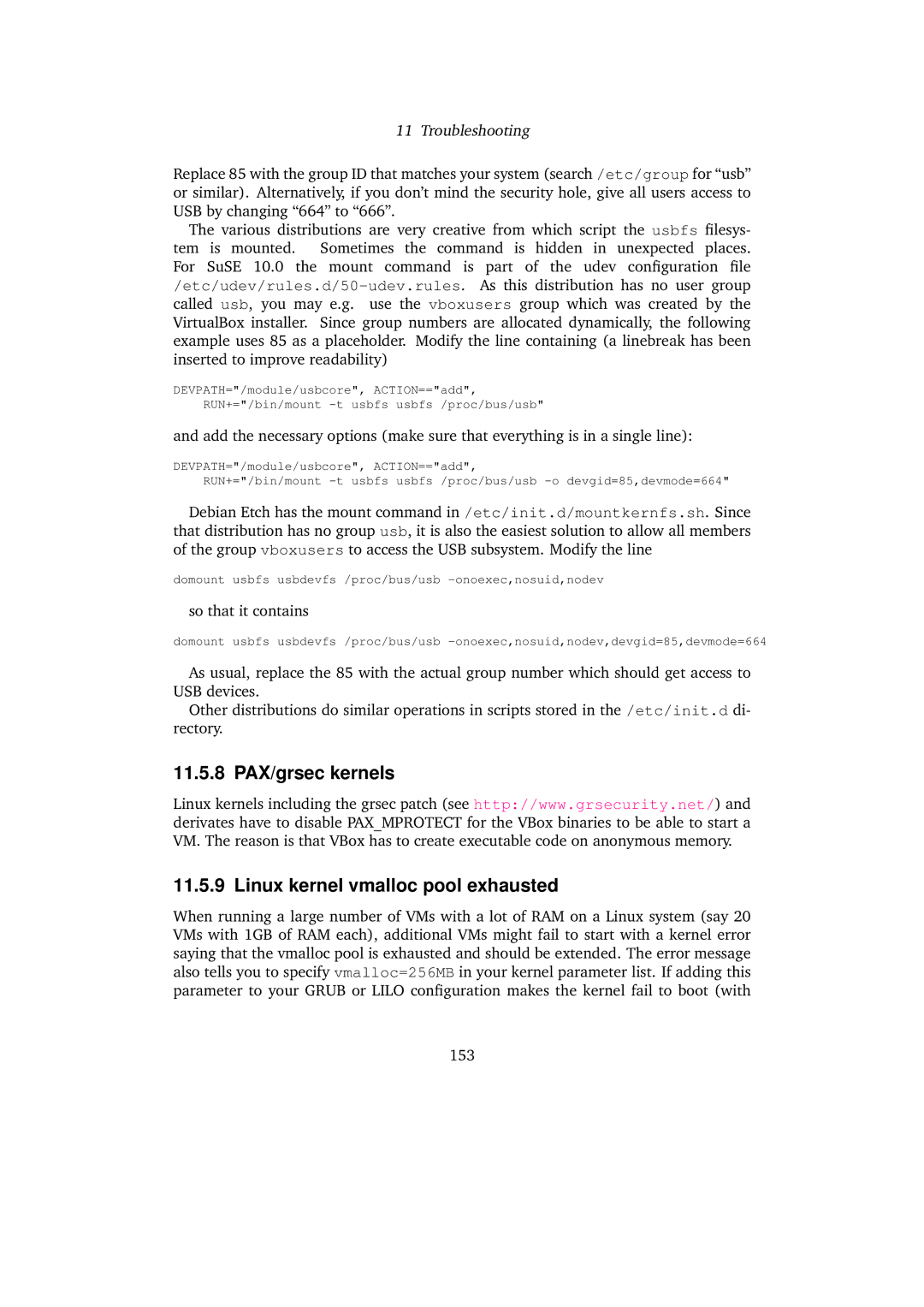11 Troubleshooting
Replace 85 with the group ID that matches your system (search /etc/group for “usb” or similar). Alternatively, if you don’t mind the security hole, give all users access to USB by changing “664” to “666”.
The various distributions are very creative from which script the usbfs filesys- tem is mounted. Sometimes the command is hidden in unexpected places. For SuSE 10.0 the mount command is part of the udev configuration
DEVPATH="/module/usbcore", ACTION=="add",
RUN+="/bin/mount
and add the necessary options (make sure that everything is in a single line):
DEVPATH="/module/usbcore", ACTION=="add",
RUN+="/bin/mount
Debian Etch has the mount command in /etc/init.d/mountkernfs.sh. Since that distribution has no group usb, it is also the easiest solution to allow all members of the group vboxusers to access the USB subsystem. Modify the line
domount usbfs usbdevfs /proc/bus/usb
so that it contains
domount usbfs usbdevfs /proc/bus/usb
As usual, replace the 85 with the actual group number which should get access to USB devices.
Other distributions do similar operations in scripts stored in the /etc/init.d di- rectory.
11.5.8 PAX/grsec kernels
Linux kernels including the grsec patch (see http://www.grsecurity.net/) and derivates have to disable PAX_MPROTECT for the VBox binaries to be able to start a VM. The reason is that VBox has to create executable code on anonymous memory.
11.5.9 Linux kernel vmalloc pool exhausted
When running a large number of VMs with a lot of RAM on a Linux system (say 20 VMs with 1GB of RAM each), additional VMs might fail to start with a kernel error saying that the vmalloc pool is exhausted and should be extended. The error message also tells you to specify vmalloc=256MB in your kernel parameter list. If adding this parameter to your GRUB or LILO configuration makes the kernel fail to boot (with
153
